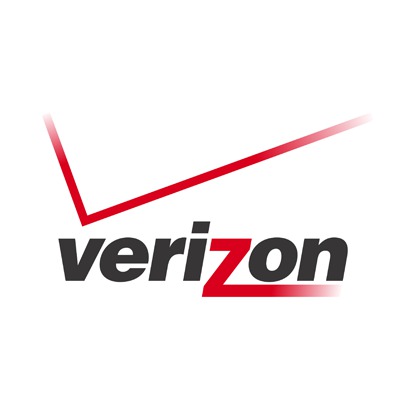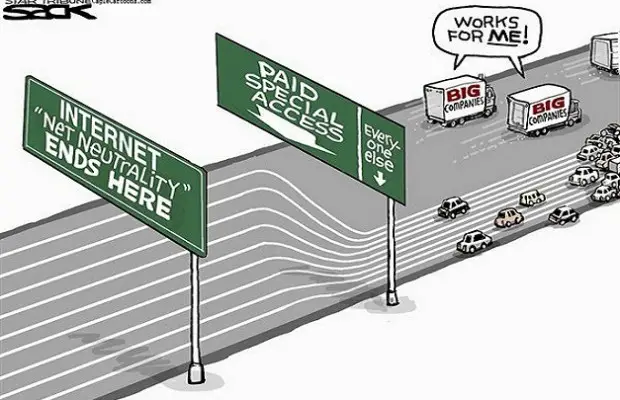
Another Example of Why We Need to Pay Attention to Net Neutrality
[The idea of net neutrality–the concept that bandwidth should be open to everyone equally without charging premiums for faster/better transmission of data–isn’t that much of an issue in Canada because we’re pretty committed to it (at least so far). In the US, though, it’s still a big fight. Amber Healy takes a look at what’s going on. – AC]
Comcast, Verizon Trying to Skirt Net Neutrality Regs
When the US Federal Communications Commission voted to enact net neutrality regulations last year to ensure unfettered and unrestricted access to content regardless of ISP, many cable and cell phone companies kicked and screamed. The regulations, they lamented, were a solution in search of a nonexistent problem.
Tell that to Comcast and Verizon customers.
This week, Verizon has announced it is intending to exempt its own video streaming service, Go90, from data caps on its network and service plans. The company is claiming this concept will allow customers to watch as much content as they’d like on their own service using its recently launched sponsored data program called FreeBee, but any other platform, including YouTube, Netflix and Hulu, will count against a data cap.
“Go90 has decided to take advantage of Verizon’s FreeBee Data 360 service, which allows them to pay for customer’s data usage associated with watching videos on the Go90 app,” Re/code reports. “FreeBee Data 360 is an open, non-exclusive service available to other content providers on a non-discriminatory basis. Any interested content provider can use FreeBee Data 360 to expand their audiences by giving consumers the opportunity to enjoy their content without incurring data charges.” Oh, by the way, Verizon runs FreeBee Data 360.
Translation: Play in our sandbox and you can have all the fun you want. And Re/code reports AT&T is considering a similar course of action.
Then there’s Comcast, which “has begun imposing extra fees on Internet customers who use what it considers excessive amounts of data,” namely people who stream a lot of content on Netflix and YouTube, according to Bloomberg Business. Right now Comcast is only targeting customers in certain cities, but there’s no stopping the company from expanding the practice. By the way, Comcast already has been questioned by regulators as to why use of its own streaming service doesn’t count against customers’ data limits. And remember that Comcast came under FCC scrutiny before the net neutrality regs were written for charging a ransom to Netflix for unrestricted service on its network.
“In almost all of Comcast’s test markets, which include Atlanta, Nashville and Miami, customers who exceed 300 gigabytes a month—the equivalent of streaming high-definition video five hours a day, by one estimate—pay $10 more for additional increments of 50 gigabytes,” Bloomberg reports. “In some cities, Comcast subscribers can pay $30 to $35 more for unlimited data. Those who stay under 5 gigabytes a month—about 3 hours of streaming high-definition video, according to the US Government Accountability Office—get $5 off their bill.”
Net neutrality supporters are watching both developments with keen attention.
It might not be the same kind of “open internet” issue the FCC had in mind, or tried to establish, in the net neutrality regulations last year, but “the test for the FCC might be: are they applying the cap to ALL data, or is discrimination happening,” notes Kevin Erickson, spokesperson for the Washington, DC-based Future of Music Coalition. “Granted, streaming video is the way most users would get to the point of that much data usage, but they may not be, technically. Obviously, Comcast would prefer for you to do your binge watching through their Xfinity platform, rather than through Netflix or other ‘over-the-top’ services. But they’ll be able to claim that because they apply the cap to all broadband data the same, it’s not prioritization. Sneaky, huh?”
Charter, another ISP currently in discussions to buy Time Warner, another cable service provider in the United States, is studying Comcast’s playbook as well, Erickson says. Charter is “trying to promise behavioral conditions as a reason the FCC should approve their merger…Really this should be a sign that the FCC should make the right call, as they did with Comcast, and reject the merger.”
Free Press, another loud and proud net neutrality supporter, has a great breakdown on the Charter-Time Warner situation and explains that the two companies, whether apart or together, will continue to fight against the FCC’s net neutrality regs, which cable companies have long claimed (unfoundedly so, by the way) will reduce investment in innovation and further distributing broadband service across the US.




Pingback: A Journal of Musical ThingsNet Neutrality Rules Upheld in Court - A Journal of Musical Things